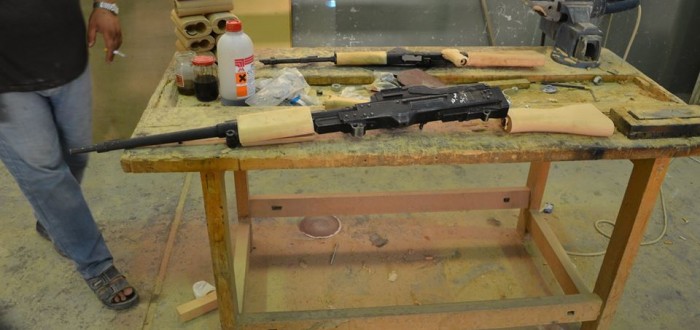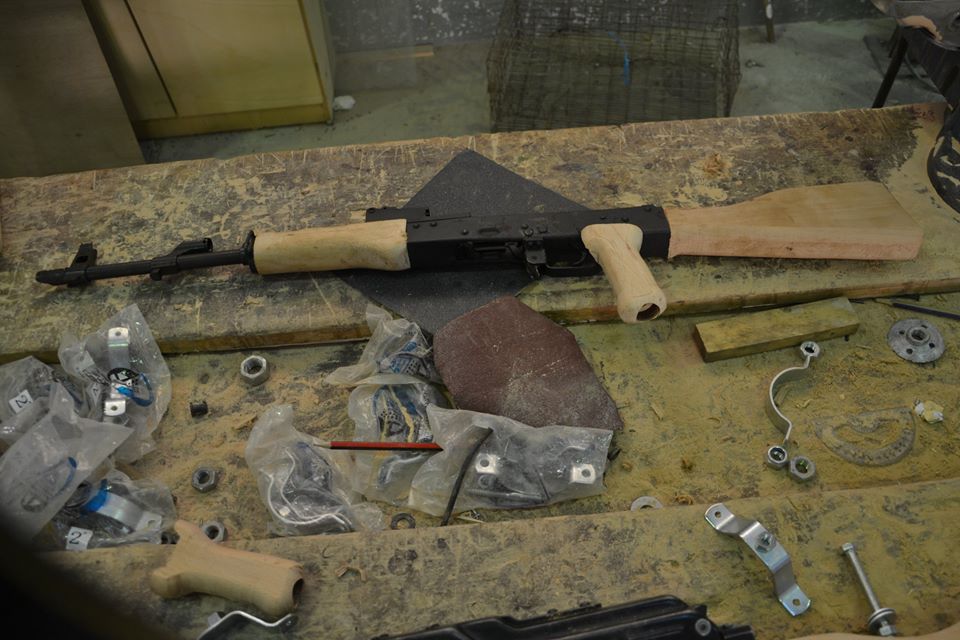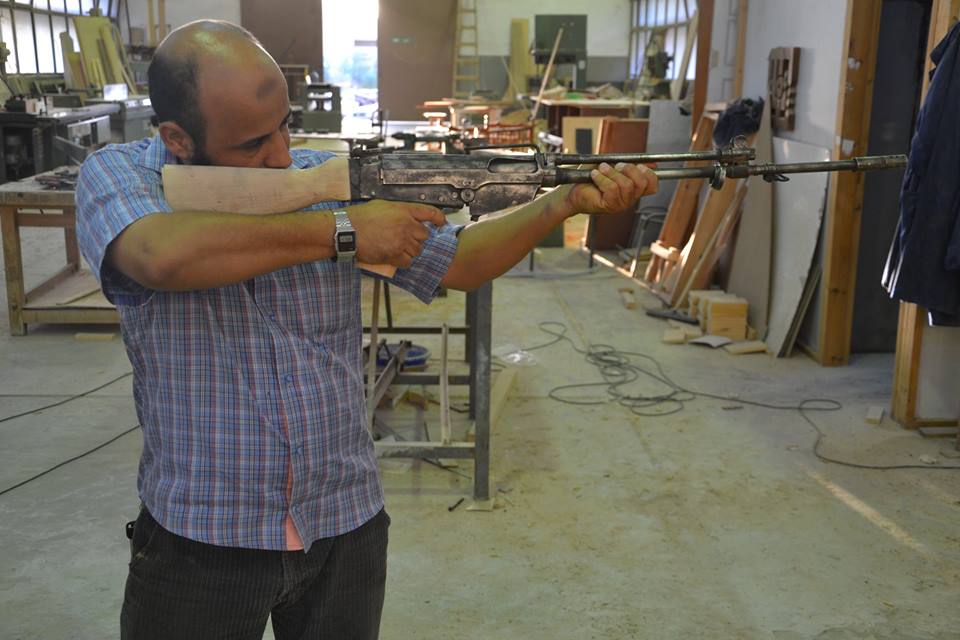By Hassan Morajea. Header image shows AKM type rifle and PKMT undergoing refurbishment.
In a militia-controlled garage in Misrata, Libya, workers service and refurbish weapons for fighters from different Misrata brigades. Free services provided range from fixing and servicing small arms and light weapons (SALW) to mounting multiple-launch rocket systems (MLRS), anti-aircraft guns, and various machine guns on militia vehicles.
A woodworking area within the garage produces furniture for various SALW. For PKT and PKMT machine guns, for example, wooden butt-stocks, grips, fore ends, and makeshift triggers are produced. These weapons, removed from tanks and other armoured fighting vehicles, are typically solenoid-operated, and lack a hand-held firing mechanism.
With damaged weapons provided to the workshop by the Misrata fighters, a variety of craft-produced components are made, enabling weapons to be reissued. The PKMT has been particularly prolific recently due to clashes with rival Zintan militias in Tripoli, resulting in many such recovered items. An estimated 600 PKT and PKMT machine guns have been converted by the workshop in August alone. Belt-fed machine guns are favoured amongst the Libyan fighters, and their relative scarcity makes this recovery and conversion attractive.
Other weapons, such as the AKM type rifle pictured above, also receive newly produced stocks and fore ends, have spares taken from unserviceable rifles, or are repaired. The example above had been recovered from a burnt out weapons storage facility. The FN Herstal FAL seen below received a similar treatment, being fitted with a new pistol grip and butt-stock after recovery from the same facility.
This process of repairing and re-purposing available arms is essential to these fighters, and significantly increases the militias’ stockpiles of serviceable arms. According to one of the workers at the garage: “you can never have enough weapons”. Given the fractious nature of the ongoing conflict in Libya, there remains the distinct possibility that these weapons could proliferate within the broader sub-region, and an understanding of these makeshift factories may prove valuable to future identification and tracing efforts.
It should be noted that weapons recovered from badly damaged buildings or vehicles, especially those exposed to significant thermal or mechanical stresses or very high pressure, may not be safe to operate.




5 thoughts on “Libyan workshop refurbishes small arms for ongoing conflict”